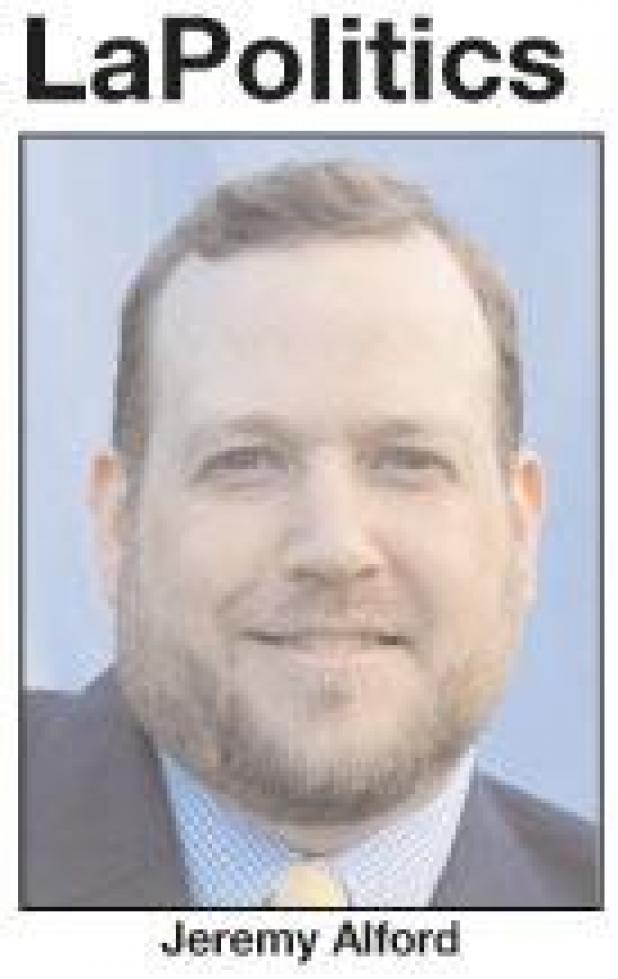
Louisiana Politics: Legislative turnover could affect half of La.'s parishes
By the spring of 2019, voters residing in 44 percent of Louisiana’s parishes will have participated in a special legislative election, and the statistic could swell before the ongoing term of the Legislature concludes in early January 2020.
Special elections have either been held or called in 28 out of Louisiana’s 64 parishes — to replace 24 legislators. All but two of those elections originated in the House, which now has a 21 percent turnover rate, the highest in recent memory.
Ten legislative sessions over the past three years; more consecutive days spent in the Capitol than any other body since 1812; and intense budget and tax votes have forced many legislators to look for exits.
“It feels like I’m agin' in dog years,” said former Rep. Rob Shadoin, a Ruston Republican, before he resigned this summer. “For every year I’m down here, it feels like seven."
If the unprecedented turnover, in recent history, wasn’t enough, there are another 47 legislators slated to move on after this term due to term limits.
In the Senate, term limits will force a 41 percent turnover next term, or 16 out of 39 senators. In the House, the number is closer to 29 percent, or 31 out of 105 reps.
Book offers another
look at David Duke
Three decades or so ago, many thought David Duke was forever banished to obscurity, and that his political career was a closed chapter. Duke, however, re-emerged on the political stage for his second act in the late 1990s and another in the 2000s.
Duke’s unlikely — and some might argued unwelcome — comeback attempt has been chronicled in Tyler Bridges’ revised book, "The Rise and Fall of David Duke." Bridges, who covered Duke’s heyday in Louisiana, has added new chapters to his previously released 1994 biography.
The first part of the book is the same as the original edition, spanning Duke’s early life, radical activities as an LSU student, his leadership role in the Ku Klux Klan, tenure in the Louisiana Legislature and his unsuccessful but highly visible runs for the U.S. Senate and governor in the early 1990s.
The book provides a fascinating insight into Duke’s political brand and the slick tactics that took a white supremacist mainstream — and temporarily made him a formidable force in the state.
Part two of Bridges’ updated effort — the new material — opens with the 1995 race for governor. It was Duke’s second try for the office and the last statewide campaign in which he would have a significant impact. He eventually got out of that contest before qualifying, cutting a backroom deal with former Gov. Mike Foster, an event Bridges aptly describes in great detail with sharp analysis.
In another chapter titled, “Two More Races, Two More Defeats,” we learn about Duke’s exit from political relevancy in Louisiana, as embarrassing finishes in the races for the U.S. Senate in 1996 and the U.S. House in 1999 all but end his unforgettable stretch as a major candidate.
Duke’s legal troubles predictably take up another chapter. The author dives deep into the fraud case that surrounded his nefarious fundraising activities, but also circles back around to the politics behind the real-life protagonist. This chapter includes a fascinating breakdown of the period of Duke’s later life where he abandoned his mainstream message of the 1990s and returned to articulating his more hardened anti-semitic and racial views.
The reader then confronts Duke, a shriveled shell of the man he once was, bumbling around Europe, getting banned from various countries while trying to make a living off of selling books and photographs. It is in these passages that Bridges takes a moment to reveal a glimpse into what could be Duke’s humanity, or something akin.
MAGA diehards will want to flip right to the concluding pages, which recounts how Duke became a hot issue during the 2016 campaign between Hillary Clinton and President Donald Trump. Duke’s own bid for the U.S. Senate that year, fueled by Trump mania, gets explored as well. But it becomes clear in the text that Duke’s late-in-life campaign was operating more on nostalgia than anything else.
Bridges’ "Rise and Fall of David Duke" is a sobering and poignant account of one of Louisiana’s darkest political actors. It’s a must-read for history buffs as well as political junkies who are interested in understanding who David Duke really was, and is, not to mention what his lasting impact on Louisiana has been.
They said it
“We don’t want to run against our constituents.”
—Congressman Cedric Richmond, on the new process for selecting delegates to the Democratic National Convention, in Politico
“All I’m saying is that we need a little bit more of what we generate. And I don’t believe it’s pie in the sky.”
—New Orleans Mayor LaToya Cantrell, on getting more state dollars, in The Advocate
For more Louisiana political news, visit www.LaPolitics.com or follow Jeremy Alford on Twitter @LaPoliticsNow.
